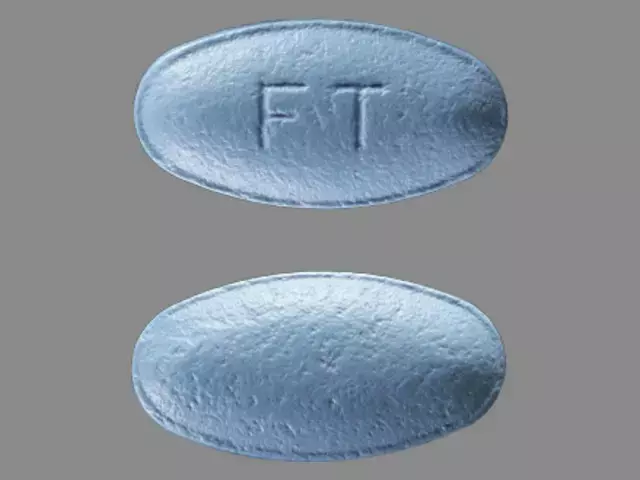- Home
- Medical news & Guidelines
- Anesthesiology
- Cardiology and CTVS
- Critical Care
- Dentistry
- Dermatology
- Diabetes and Endocrinology
- ENT
- Gastroenterology
- Medicine
- Nephrology
- Neurology
- Obstretics-Gynaecology
- Oncology
- Ophthalmology
- Orthopaedics
- Pediatrics-Neonatology
- Psychiatry
- Pulmonology
- Radiology
- Surgery
- Urology
- Laboratory Medicine
- Diet
- Nursing
- Paramedical
- Physiotherapy
- Health news
- Fact Check
- Bone Health Fact Check
- Brain Health Fact Check
- Cancer Related Fact Check
- Child Care Fact Check
- Dental and oral health fact check
- Diabetes and metabolic health fact check
- Diet and Nutrition Fact Check
- Eye and ENT Care Fact Check
- Fitness fact check
- Gut health fact check
- Heart health fact check
- Kidney health fact check
- Medical education fact check
- Men's health fact check
- Respiratory fact check
- Skin and hair care fact check
- Vaccine and Immunization fact check
- Women's health fact check
- AYUSH
- State News
- Andaman and Nicobar Islands
- Andhra Pradesh
- Arunachal Pradesh
- Assam
- Bihar
- Chandigarh
- Chattisgarh
- Dadra and Nagar Haveli
- Daman and Diu
- Delhi
- Goa
- Gujarat
- Haryana
- Himachal Pradesh
- Jammu & Kashmir
- Jharkhand
- Karnataka
- Kerala
- Ladakh
- Lakshadweep
- Madhya Pradesh
- Maharashtra
- Manipur
- Meghalaya
- Mizoram
- Nagaland
- Odisha
- Puducherry
- Punjab
- Rajasthan
- Sikkim
- Tamil Nadu
- Telangana
- Tripura
- Uttar Pradesh
- Uttrakhand
- West Bengal
- Medical Education
- Industry
Fesoterodine safe and effective in 6-<18-year-old patients with Neurogenic detrusor overactivity

Fesoterodine, a muscarinic receptor antagonist, is safe and effective in in 6-<18-year-old patients with Neurogenic detrusor overactivity suggests a new study published in the Journal of Pediatric Urology.
Neurogenic detrusor overactivity (NDO) can damage the upper urinary tract leading to chronic renal impairment. Antimuscarinic therapy is used to improve urinary incontinence and protect the upper urinary tract in patients with NDO.
This study investigated safety and efficacy of fesoterodine, a muscarinic receptor antagonist, in 6‒<18-year-old patients with NDO.
This open-label phase 3 study included 2 pediatric cohorts. Patients in Cohort 1 (bodyweight >25 kg) were randomized to fesoterodine 4 or 8 mg extended-release tablets or oxybutynin XL tablets administered over the 12-week active comparator-controlled phase. The safety extension phase evaluated fesoterodine 4 and 8 mg for a further 12 weeks, with patients in the oxybutynin arm allocated to fesoterodine 4 or 8 mg. Patients in Cohort 2 (bodyweight ≤25 kg) were randomized to fesoterodine 2 or 4 mg extended-release beads-in-capsule (BIC) administered over a 12-week efficacy phase and 12-week safety extension phase. Patients with stable neurologic disease and clinically or urodynamically proven NDO were included. The primary endpoint was change from baseline to Week 12 in maximum cystometric bladder capacity (MCC). Secondary efficacy endpoints included detrusor pressure at maximum bladder capacity, bladder volume at first involuntary detrusor contraction, bladder compliance, and incontinence episodes. Safety endpoints included adverse event incidence, and specific assessments of cognition, behavior and vision. The pharmacokinetics of 5-hydroxymethyl tolterodine (5-HMT; fesoterodine’s active metabolite) was determined using population-pharmacokinetic analysis.
Results
• In Cohort 1 (n = 124), fesoterodine 4 and 8 mg treatment resulted in significant increases from baseline in the primary endpoint of MCC at Week 12.
• In Cohort 2 (n = 57), fesoterodine 2 and 4 mg BIC treatment resulted in improvements in MCC from baseline.
• Fesoterodine 4 and 8 mg and fesoterodine 4 mg BIC led to improvements in some secondary efficacy endpoints.
• The most common treatment-related adverse reactions were gastrointestinal effects, such as dry mouth, which occurred more frequently with oxybutynin than fesoterodine.
• No detrimental effects on visual accommodation or acuity, or on cognitive function or behavior were observed.
These safety and efficacy results are consistent with limited published data on fesoterodine treatment in pediatric populations with overactive bladder or NDO. Study limitations include the lack of placebo control and the small sample size, which limits the ability to make formal efficacy comparisons and detect rare adverse reactions.
Fesoterodine has a favorable benefit−risk profile in 6‒<18-year-old patients with NDO and may represent an additional option for pediatric NDO treatment.
Reference:
Takeya Kitta, Amanda Darekar, Bimal Malhotra, Mohamed H. Shahin, Philip Jones, Monica Lindsay, Sharon Mallen, Alejandra Nieto, Tim J. Crook, Fesoterodine treatment of pediatric patients with neurogenic detrusor overactivity: A 24-week, randomized, open-label, phase 3 study,Journal of Pediatric Urology, Volume 19, Issue 2, 2023, Pages 175.e1-175.e10, ISSN 1477-5131. https://doi.org/10.1016/j.jpurol.2022.11.020.
(https://www.sciencedirect.com/science/article/pii/S1477513122005356)
Dr. Shravani Dali has completed her BDS from Pravara institute of medical sciences, loni. Following which she extensively worked in the healthcare sector for 2+ years. She has been actively involved in writing blogs in field of health and wellness. Currently she is pursuing her Masters of public health-health administration from Tata institute of social sciences. She can be contacted at editorial@medicaldialogues.in.
Dr Kamal Kant Kohli-MBBS, DTCD- a chest specialist with more than 30 years of practice and a flair for writing clinical articles, Dr Kamal Kant Kohli joined Medical Dialogues as a Chief Editor of Medical News. Besides writing articles, as an editor, he proofreads and verifies all the medical content published on Medical Dialogues including those coming from journals, studies,medical conferences,guidelines etc. Email: drkohli@medicaldialogues.in. Contact no. 011-43720751


